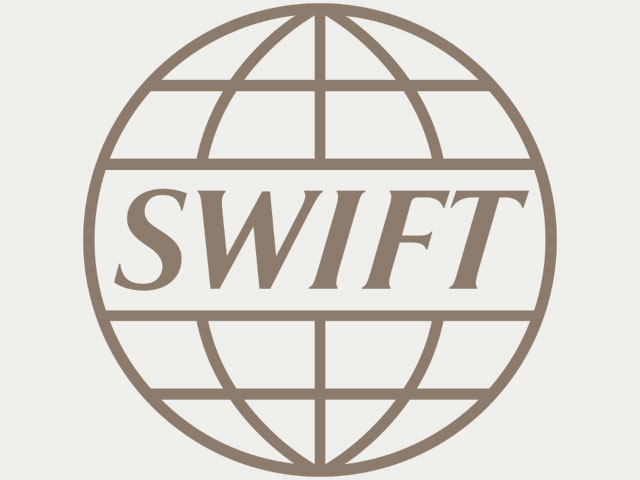The SWIFT system is a secure messaging system considered the main tool for communication and exchange between more than 10,000 financial institutions worldwide. It is through this network that international transactions are carried out. Therefore, if Russian banks are disconnected, it could hamper the country's ability to operate globally.
I- Presentation of the SWIFT network
The SWIFT network is an interbank network that allows financial transactions between more than 10,000 financial institutions. Moreover, as it is an acronym in English that means “Society for Worldwide Interbank Financial”, it is a financial telecommunications company that allows the organisations concerned, and distributed in 200 countries, to communicate in a secure way.
The company that originated in Belgian was created in 1973, and it was not until 1977 that it became officially operational. Originally it was a network that mainly used Telex, but this medium was found to be unreliable and sometimes very slow. That is why, in 2004, the company decided to modernise its infrastructure by using the Internet. Today the SWIFT network is considered an indispensable element within the regulated finance industry.
Indeed, known for its various services, particularly in terms of communication and security, the SWIFT network makes it possible to carry out account-to-account transfers, BIC registrations, recovery procedures, or transactions on securities or currencies. It is true that the main missions of this network are diverse, but the most important is to maintain its role of analysis, exchange, and internal communication so that customers can carry out their transactions and exchange financial data with complete confidentiality. In addition, the SWIFT network is also responsible for seeking solutions to problems relating to the functioning of the financial system.
In other words, the SWIFT network guarantees integrity, reliability and security for everything relating to financial exchanges, thanks to the transmission of encrypted data and very rigorous authentication. The goal is to have a maximum of information concerning the transactions carried out so that no third party can deny them. It should be noted that the network is not responsible for managing customer accounts and that financial information is stored temporarily.
II- How SWIFT works
The SWIFT network is a system that operates using IP addresses provided by different providers to ensure better security. The identification of members within the network is by use of an 8-character SWIFT code called BIC (Bank Identifier Code). This code includes the bank identifiers, the country code as well as the location code. Example: CRLYFRPP for Crédit Lyonnais, France, Paris. On the SWIFT website, there is a directory that allows you to find the identity of a member of the BIC of a financial institution.
The SWIFT code can also be accompanied by 3 other characters, which constitute the code of the agency concerned. They can be used by the receiver to enter into its information system. When the latter does not know the code, he can simply add 3X (XXX) to the first 8 characters of the code.
FIN messaging refers to financial messages exchanged between participants. They are created following a form that makes it easier to send and interpret them. The form of the messages is automatically checked by the SWIFT network, and the message is erroneous in the event of non-compliance. These messages are identified by a code called “MT” to which 3 additional characters are added. These figures take into account the category as well as the type of message.
III- Consequences for Russia
Following the dramatic events in Ukraine, the United States and the European Union want to exclude certain Russian banks from the SWIFT interbank network. Moreover, one of the first members to have accepted is Germany.
Taking into account the importance of the SWIFT financial system, denying access to its services to Russian banks would endanger all transactions carried out to and from Russia. This exclusion will inevitably be accompanied by a massive exodus of capital and currency volatility. It is true that such a decision could be very handicapping for Russian banks, but some of them are not affected since certain transactions are not carried out through the SWIFT network. So, it is quite possible to find alternatives. Moreover, launched in 2017, the SPFS is a Russian financial system that brings together more than 300 Russian financial institutions and a dozen foreign financial organisations.
You should know that this alternative can only minimise the damage caused by exclusion from the SWIFT network. But, as far as trade with the West is concerned, the SPFS will not be able to perform miracles. In addition, all trades made outside the SWIFT system will be much more expensive and time-consuming. The ban on access to the SWIFT network is, therefore, an obstacle for Russia and its integration into the global economy.
It should be noted that the exclusion of Russia from the SWIFT financial system may have a collateral effect on other countries, particularly the United States and the EU. This sanction is undoubtedly disabling for Russia, but it can also have lasting repercussions on other countries. For example, confidence in SWIFT and in the US dollar can quickly be affected. If other alternatives are created, for example, exchanges in cryptocurrency, local currency or even the creation of new free trade agreements, trade and the world economy will have to quickly assume the consequences. Moreover, in India and China, exchanges are already done in local currency, and it is obvious that Russia has already thought of this alternative.
Conclusion
SWIFT is a cooperative company that provides the international interbank network and communication between many market players. It is an essential player in the smooth running of international banking and exchange transactions between the 200 participating countries. This is why an exclusion from this network can have serious consequences on the excluded country, as well as the other countries which operate with it. In the case of Russia, an exclusion can have lasting repercussions because it is impossible to be able to sanction a country such as Russia without causing a flagrant imbalance in the world economy and in trade.
References :
SWIFT protocol https://e-finances.fr/tout-savoir-sur-le-protocole-swift/
What is the Swift network from which Russia could be excluded after the invasion of Ukraine? https://www.ouest-france.fr/leditiondusoir/2022-02-24/qu-est-ce-que-le-reseau-swift-dont-la-russie-pourrait-etre-exclue-apres-l- invasion-of-ukraine-cc73aecc-9472-4964-b711-dda21861722c
Here's what the Russian economy is really worth https://paperjam.lu/article/russie-etait-elle-prete-face-a#:~:text=Dans%20ses%20pr%C3%A9visions%20macro%C3%A9conomiques%20publi%C3%A9es,un% 20sc%C3%A9nario%20de%20crise%20financi%C3%A8re .
Precedents, effectiveness, consequences https://www.lorientlejour.com/article/1291934/precedents-efficacite-consequences-ce-quil-faut-savoir-sur-lexclusion-annoncee-de-banques-russes-du-reseau-swift .html
Find out more about the SWIFT interbank network https://billetdebanque.panorabanques.com/banque/fiche-pratique-banque/en-savoir-plus-sur-le-reseau-interbancaire-swift/












